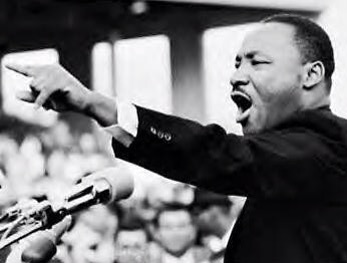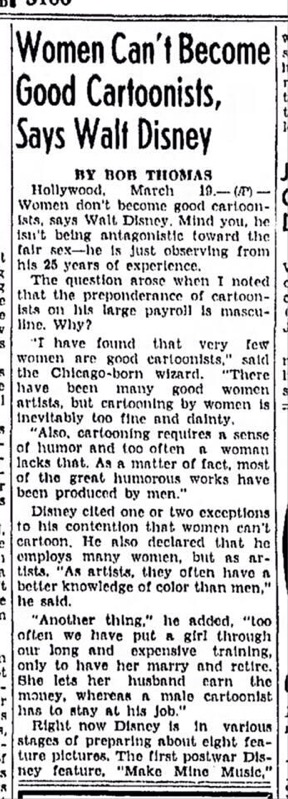51 days to break his first major promise
That has to be some kind of a record. Sworn in start of December, whiplash-inducing flip flop a few weeks later.
A record! First major promise broken in 51 days! 'Tory goes against campaign pledge & hikes TTC fares' #topoli http://t.co/CG040VJMhq
— Warren Kinsella (@kinsellawarren) January 20, 2015
— Warren Kinsella (@kinsellawarren) January 20, 2015
Bottom line: he lied.
In Tuesday’s Sun: terror isn’t on the ballot, but it may as well be
In Summer of 1986, around the time I was reporting on the activities of the neo-Nazi Aryan Nations for the Calgary Herald, an editor approached me in the newsroom.
“How many of these Aryan Nation guys are there in Alberta?” he asked me.
“Hardcore, committed members?” I said. “Maybe forty or so.”
“Forty!” the editor said. “That’s ridiculous! Why are we writing so much about a group of lunatics with no more than forty members?”
The answer was blindingly obvious, but I didn’t argue. The editor had a higher pay grade than me. So I kept quiet.
In the intervening years, perhaps the answer has finally revealed itself to that editor. The Aryan Nations – like every other terrorist organization extant – is disinterested in democracy. Between 1983 and 1986, members of the Aryan Nations had been involved in assassinations, robberies, bombings and a multiplicity of other crimes. Their objective, like all terrorist groups, had been to destroy democracy.
Like all other terrorist groups, too, the Aryan Nations used undemocratic means to achieve change. It doesn’t use ballots do so; it used bullets and bombs. So the fact that it had just a few dozen members was completely, thoroughly irrelevant. Focusing on membership numbers in terrorist organizations – as opposed to what those members can actually do – has had calamitous consequences for the West.
In the years that followed, the United States learned this lesson the hard way. The worst act of domestic terrorism in the history of the U.S. was the Oklahoma City bombing in April 1995, claiming the lives of 168 men, women and children – and was carried out by just two men. The worst act of international terrorism in the history of the U.S. was the 9/11 attacks in September 2001, claiming the lives of 2,996 men, women and children – and was carried out by just 19 men.
The implications of terrorist acts – particularly when carried out in proximity to an election year – are far-ranging for every democracy. And terrorists have therefore become very adept at affecting democratic outcomes using undemocratic means.
One academic study in Israel – which has more than a passing acquaintance with terrorism – found this: “The electorate is highly sensitive to terror fatalities…terrorism causes an important increase on the support for [conservative] political parties.”
Closer to home, a study published by Queen’s University also looked at a generation of terrorist attacks in Israel, and their effect at voting time. “Terrorism is causing Israelis to increasingly vote for right-wing parties, while at the same time, they are turning left in their political views,” the professors concluded. “In periods of repeated terror attacks, voters increase their support for [conservative] political parties because [conservatives place] a larger emphasis on security related issues. Right-wing parties benefit from the increasing prominence of the security issue during a wave of terror.”
This last result may explain what is now seemingly happening in Canadian politics. For months, a majority of Canadians wanted Justin Trudeau to be Prime Minister, and a majority wanted a Liberal federal government. If you were to ask them if they still self-identify as Liberals, and if they still like Justin Trudeau, they would almost certainly say yes.
But, increasingly, it appears they would also say that they do not think Trudeau is experienced enough to handle the sorts of terrorist incidents that have been happening, with increasing frequency and ferocity, in Western democracies. They do not think he is ready.
In Israel, the academics found the same phenomenon: the electorate was moving Left, but – after a terror attack – voting Right.
Terror is the antithesis of democracy, of course. But it is apparent that – even in a place as removed from the Middle East as Canada is – terrorists can still have an impact on millions of people far, far out of proportion to their numbers.
Today
Now-now, Now
The self-professed progressive free speechies at Now are threatening to sue me again. Yawn.
Sure can dish it out, etc. etc.
I guess we know why Walt Disney killed off mother figures in his cartoons, now
In Friday’s Sun: it’s (still) the economy, stupid
It’s the economy, stupid.
That’s what Bill Clinton’s top strategist, James Carville, famously wrote on a piece of paper, a generation ago. He then put it up on the wall of the Clinton campaign war room in Little Rock, Arkansas. (He also posted two other important messages that have achieved less recognition: “Change vs. More of the same” and “Don’t forget healthcare.”)
Clinton, aided and abetted by Carville, would go on to win the 1992 presidential election campaign, of course. Most folks attribute that victory to Clinton and Carville’s laser-like focus on the economy.
It’s become conventional political wisdom in the intervening years. Incumbents win when the economy is good; challengers win when the economy is bad. Everything else – health care, national security, whatever – is important, but not nearly as important as the economy.
But is that axiom still true? Justin Trudeau doesn’t talk about the economy all that much, but he is doing rather well with just the above-noted “change” formulation, thank you very much. He could win simply by being unlike the other two guys, and by maintaining a pulse.
Stephen Harper, meanwhile, is defying the conventional political wisdom with a singular focus on foreign affairs. In recent months, the Conservative Prime Minister has been much more preoccupied with international files: brokering détente with Cuba and the U.S., staring down Russia’s despot Vladimir Putin, an increasing focus on the Arctic Circle geopolitics, and of course military action against ISIS/ISIL. It is harder to recall anything noteworthy that he has had to say about the economy.
Despite that, Harper’s party is competitive again – and he has started to emerge in polling as Canadians’ preferred choice as Prime Minister.
So what, then, of the economy? With both Trudeau and Harper remaining popular, and with both saying precious little of note about it, is the Clinton/Carville formulation no longer true?
One senior analyst with a major bank (one who, unlike most bankers, knows a great deal about politics, and has even helped run a few winning campaigns) knows why Harper has not yet been hurt by his pirouettes on the international stage. The bad news – plummeting oil prices, a declining dollar, and a December drop in jobs and building permits – hasn’t really registered on the public consciousness, he says.
“The next fiscal year, 2015-2016, is when we will see the big impact from oil prices,” says the analyst. “[But Harper] will still balance the budget this year – the $3 billion contingency fund allows him to do that. Next year may show a slight deficit, which is bad for political purposes. But it’s virtually meaningless for financial markets.”
The analyst concedes that this week’s much-publicized TD Bank report likely caused some consternation at the Department of Finance and the Prime Minister’s Office. In the report, TD predicted that the Conservative government’s balanced budget would now only happen “with the thinnest of margins.”
Our anonymous political-financial analyst, who works for a rival bank, is undeterred. “The trend in debt-to-GDP continues down, and positively,” he says. “Canada’s AAA credit rating is intact. Even TD projects surpluses to return. And refinancing of the debt is resulting in big time savings for federal government.”
But does that mean, then, that the Prime Minister has many more months of wiggle room – and that he can put off Election 2015 to the Fall?
The smart banker doesn’t hesitate. “If was his advisor, I would say: let’s go sooner. Let’s not give any more time to the Opposition on the Summer BBQ circuit!”
In other words: it’s still about the economy, stupid. And Stephen Harper is well-advised to go before the economy gets worse, and the electorate start to notice.
The Pope agrees with me, naturally
Free speech, but not without limits. In other words, say whatever you want, but don’t expect to never, ever get a reaction that isn’t somehow wrathful (not homicidal).
But that’s not why I posted this. That’s not the best part. The best part? The notion of priestly fisticuffs. Classic.
Frank Schiller
Impressive guy. Smart. Worked with him many years ago. Would make a fine MP.
The best-laid plans of men, mice and Conservatives
…often go awry. So sayeth Robbie Burns (not The Bard, as I mistakenly said on Twitter, and my genial colleague Chris Blizzard promptly set me straight).
Man oh man, this election just got very interesting.


